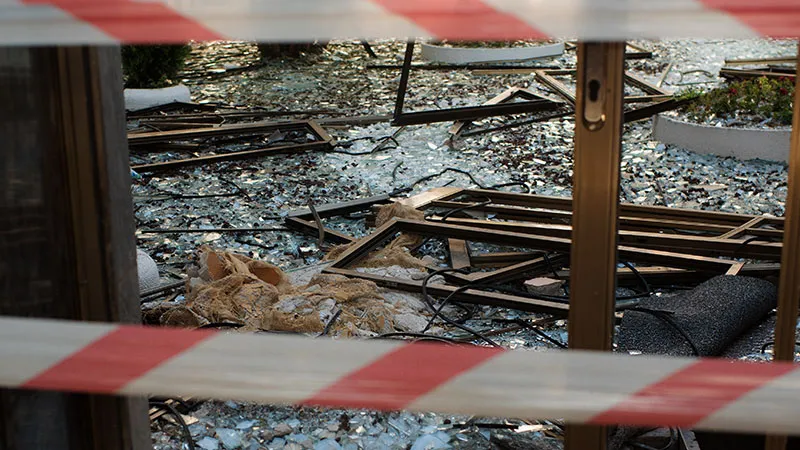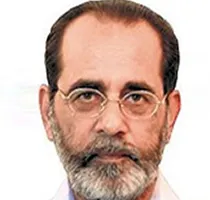-
CENTRES
Progammes & Centres
Location

On Friday, July 15, at about 21:00 hours, came the first reports of gunfire near the Army Headquarters in Ankara. In Istanbul, the Bosphorus and the Fatih Sultan bridges were closed. Fighter jets and helicopters were seen flying over both the cities. An announcement was made over the state broadcaster that the Army (a faction of it, as it turned out later) had seized power from President Recip Tayyip Erdogan in order to protect democracy. This was followed by a statement from Prime Minister Binali Yildirim that a coup to overthrow the government was underway.
A little later, President Erdogan took to FaceTime, asking the people to turn out in large numbers on the streets against the coup plotters. The people heeded his call and hours later came the announcement that the coup had been thwarted. The 24 coup plotters were among the 264 killed; casualties included 173 civilians, five soldiers and 62 police officials. Report followed the same night that Turkish cleric Fethullah Gulen, founder of Hizmet and in exile in the US since 1999, was involved in the failed coup. Gulen has denied it and condemned the coup unequivocally.
Erdogan has claimed that the coup was a “gift from God to us because this will be a reason to cleanse our army.” With both the Gulenists and the secularists in the Army now labelled as ‘traitors’, Erdogan has been making full use of ‘God’s gift’ to carry out an unprecedented purge. By the end of July, the Ministry of Education had sacked 15,200 persons and 1577 Deans in universities had been asked to resign. 21000 licences given to private school teachers have been revoked. 15 universities, 934 schools, 104 foundations, 35 hospitals, 19 unions and 1125 registered associations have been shut down.
The military, police and judiciary were badly hit. 7500 soldiers including 118 generals, 9000 police including 1000 officers and 3000 judges have been placed under suspension and are under investigation. This is over and above the 87 army generals, 30 air force generals and 32 navy admirals who have been dishonourably discharged together with 1445 lower ranking officers. Gen Akin Ozturk (commanding the NATO base at Incirlik) and General Adem Hududi (commanding the 2nd Army covering the restive borders with Syria, Iraq and Iran) have been named as the ringleaders.
Dismissals in the Interior Ministry number 8777, in the Finance Ministry 1500 and 492 persons from the Directorate of Religious Affairs. A hundred officials from the intelligence agency (MIT) and 257 persons from the Prime Minister’s Office have been dismissed. Licences of 24 radio and TV channels have been revoked.
A state of national emergency was declared for a three month period. Erdogan has called for reintroducing the death penalty; it had been abolished in 2004 as part of Turkey’s push for joining the EU. Gulen’s extradition from the US has been sought and knowing that the Turkish request is unlikely to be acceded to, reports have surfaced hinting at US complicity in the failed coup. All this has put Turkey’s relations with US and European countries under strain.
Read also: Is Turkey becoming a headache for the US?
For the Europeans, the key concern relates to the future of March 18 deal on controlling the flow of the Syrian refugees into the EU. From 8000 migrants reaching Greece via Turkey every week in early this year, the number has now come down to approximately 500 a week. Turkey’s grouse is that it has received about one percent of the three billion euros promised and the discussions on visa free entry for Turkish citizens into the Schengen zone have stalled. Erdogan’s threat to review the deal has led to a muting of European criticism of the purges.
In the months preceding the failed coup, Erdogan was seen to be under pressure because of the blowback from his anti-Assad adventurist Syria policy. The rise of the IS and the revival of Kurdish nationalism had made both Ankara and Istanbul a target of repeated terrorist attacks during the last twelve months. In the most recent attack on June 28 at Istanbul airport, 45 people were killed by three gunmen; they were later identified as a Russian, a Kyrgyz and an Uzbek. Ahmet Chatayev, a Chechen terrorist with the IS has been identified as the key planner. Turkish agencies have found it difficult to monitor the growing presence of central Asians and Caucasians (Russians, Chechens and Dagestanis) keen to join the anti-Assad groups.
Meanwhile, the collapse of the two year old ceasefire with the PKK (Kurdistan’s Workers Party) last year aggravated the old tensions. Turkey has been more comfortable with the Iraqi Kurdish groups compared to the Syrian Kurds because the latter have a closer affinity with the PKK. However the US has found them also to be most effective fighters against the IS and are receiving the largest amount of military hardware. This has emerged as yet another reason for Erdogan’s unhappiness with the US.
Realising his difficulties, Erdogan had moved to repair ties with Israel and Russia in the weeks preceding the failed coup. Ties with Russia were badly impacted last November when Turkish F-16 aircraft shot down a Russian SU-24 for alleged air space violations. President Putin reacted strongly, imposing a ban on Turkish food imports into Russia and on Turkish construction companies. Russian group tours to Turkey were banned severely impacting Turkey’s tourist industry. In June, Erdogan tendered an unqualified apology and conveyed his condolences to the family of the Russian pilot who had been killed, opening the way to a gradual restoration.
With Israel, relations had been suspended since 2010 when a Turkish flotilla carrying relief supplies for the beleaguered Palestinians in Gaza breached an Israeli blockade. Israeli commandos boarded the Turkish vessels and in the fighting, ten Turkish activists were killed. Turkey has accepted a compensation package of $20 million and agreed to drop all cases. Exchange of Ambassadors is expected in the near future.
However, Erdogan soon realised that his challenges had only grown. These were not only external but also internal. Additionally, Erdogan remains intent on changing the Turkish constitution to bring in a presidential system even as he overturns the secular legacy of Ataturk, reviving instead an Islamic legacy of the Ottoman era. This quest has increased his isolation, including in the Arab world, making him increasingly paranoid.
Opposition parties had supported Erdogan in denouncing the coup. But now questions are being asked as to why it was such a botched up affair. Opposition parties and secularists are increasingly nervous as they see the purges undermining Turkey’s democracy and pluralism even as Erdogan emerges as the new Sultan, courtesy a failed coup.
The views expressed above belong to the author(s). ORF research and analyses now available on Telegram! Click here to access our curated content — blogs, longforms and interviews.

Ambassador Rakesh Sood was a Distinguished Fellow at ORF. He has over 38 years of experience in the field of foreign affairs economic diplomacy and ...
Read More +